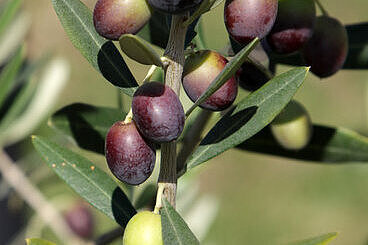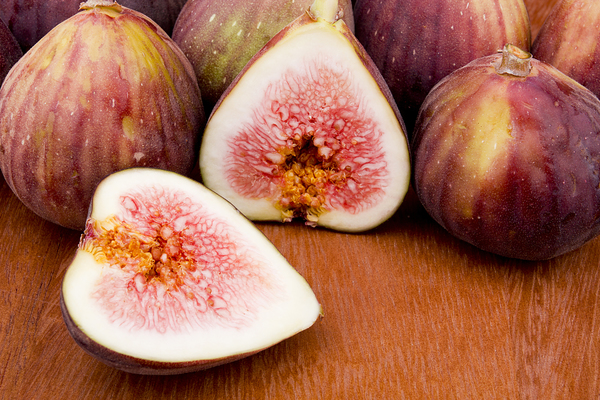Carob tree

The carob tree and its components
What is the carob tree?
The carob tree (Ceratonia siliqua), often found in the Mediterranean regions, is known for its nutritious and sweet fruit called carob. The fruits are rich in vitamins and minerals, making them a healthy addition to the human diet. But what about dogs?
Components of carob
Carob contains a variety of nutrients that make it a potentially valuable part of a dog's diet:
- Vitamins: It is rich in vitamins such as vitamins A, B2, B3 and D, which are essential for maintaining good health in dogs.
- Minerals: Carob contains important minerals such as calcium, magnesium, potassium and iron, which contribute to healthy bones, a good metabolism and an optimal oxygen supply.
- Dietary fiber: A high natural fiber content aids digestion and can help regulate weight.
- Antioxidants: The antioxidants it contains fight free radicals and can reduce inflammation and strengthen the immune system.
Is carob safe for dogs?
The good news is that carob is considered safe for dogs. Unlike chocolate, which contains theobromine and is very toxic to dogs, carob is free of this dangerous substance. Instead, it provides a natural sweetness that is safe for dogs as long as it is fed in moderation. It can be a healthy treat or a tasty addition to regular food without putting your dog's health at risk.
Dosage and use
How much carob is safe?
As with any supplement to your dog's diet, moderation is key. Although carob is safe for dogs, it should only be used as an occasional treat and not as a main part of their diet. A small amount, adjusted to your dog's size and weight, is enough to enjoy the benefits without risking gastrointestinal discomfort.
Creative ways to introduce carob into your dog's diet
Carob can become part of your dog's diet in a variety of ways:
- As a treat: pieces of carob can be a delicious and healthy reward.
- In food: A little carob powder sprinkled over regular food can provide a nutritious supplement.
- In homemade dog cookies: Many dog cookie recipes can be spiced up by adding carob powder to create a healthy and tasty snack.
A healthy supplement to be used with caution
Carob is an excellent, natural addition to your dog's diet that is safe and healthy as long as it is used responsibly. The natural sweeteners, vitamins and minerals make it a valuable alternative to conventional treats. However, it is important to monitor the amount and ensure your dog is getting a balanced diet. With this knowledge base, you can give your four-legged friend a little treat without putting their health at risk.
If you notice any signs of hypersensitivity or poisoning in your dog, you should see your vet immediately. We are not a substitute for a vet, but we try to be as accurate as possible. Every dog reacts differently and we recommend you get a second opinion or consult your vet if in doubt.
Stay healthy and take good care of your four-legged friend!😊
Similar to Carob tree
The olive tree belongs to the olive tree family (Oleaceae) and is one of the oldest cultivated plants in the world. It originally comes from the Middle East and was cultivated in the Mediterranean...
Figs are the fruit of the fig tree, a plant from the mulberry family. They are oval or pear-shaped and have a greenish, brown or purple skin. Inside there are many small seeds surrounded by soft,...
Before we dive into how dogs can tolerate almonds, it's important to understand the botanical basics. The almond tree(Prunus dulcis) is a member of the rose family (Rosaceae), which also includes...
The date palm (Phoenix dactylifera) is best known for its sweet fruit, dates, which have been valued as a food source in various cultures for thousands of years. But the plant consists of more than...



